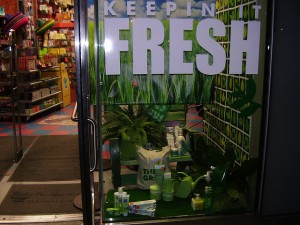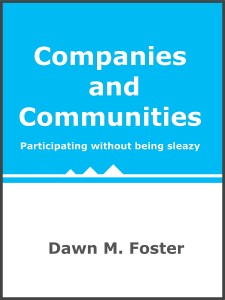 After over two years of leading the community efforts for the Open Source Technology Center, I have decided to leave Intel. This was a really tough decision for me, but the reality is that the job isn’t the right fit for me right now for a variety of reasons. I want to thank the management of the Open Source Technology Center for working with me during the process of trying to make the job work better for me. It’s a great team of people who continue to do really interesting work in open source.
After over two years of leading the community efforts for the Open Source Technology Center, I have decided to leave Intel. This was a really tough decision for me, but the reality is that the job isn’t the right fit for me right now for a variety of reasons. I want to thank the management of the Open Source Technology Center for working with me during the process of trying to make the job work better for me. It’s a great team of people who continue to do really interesting work in open source.
But, it was more than just the job. I’ve worked in large companies and startups, and I’ve realized that I really want to get back into a startup again. I miss the energy of working in a startup where everything moves faster than in a large corporation.
I’ll be taking the rest of August mostly off to relax and work on a few geeky personal projects. Starting in September, I’ll either take a full-time job or do some consulting while I continue to look for the right opportunity. I’ve already starting talking to a few people, and I would like to eventually land at a startup in a Director / VP level community, evangelist or open source position. I’m willing to take my time to find the right fit, and that includes finding a job where I can live in Portland, but travel to other places as needed.
I feel very fortunate to have some flexibility and other options that allow me to make this move now. As a result, my last day at Intel will be August 7. While I will miss many of the friends and smart people I’ve worked with at Intel, I feel like this is the right decision for me at this time.
Photo by Patrick McGarvey used under a Creative Commons license. A side note: this is one of my favorite roller coasters, The Maverick, at Cedar Point in Sandusky, Ohio, and I plan to ride it on vacation next week! 🙂



 The
The